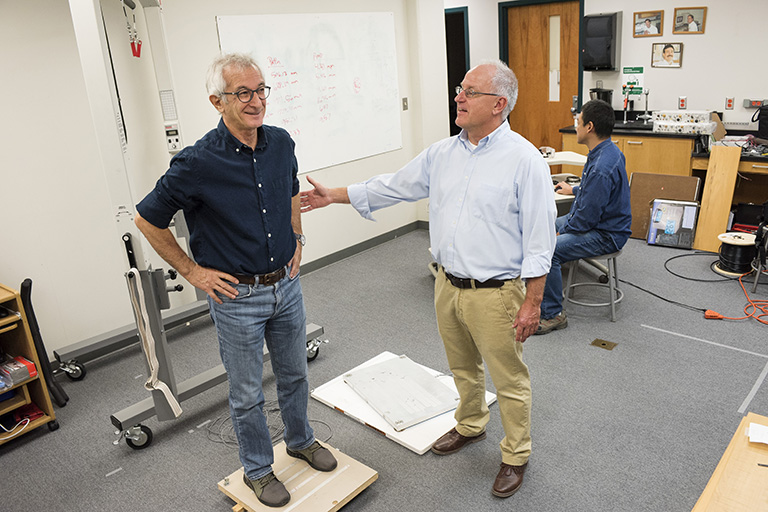A flexible degree with several possible tracks
The Master of Science in Kinesiology provides you with a broad foundation through its core courses, which include advanced topics in athletic training research, the psychological foundation of exercise and sport, and the fundamentals of interpreting research. You will also choose one of the following tracks to explore in-depth:
Biomechanics: An interdisciplinary approach to the mechanical aspects of human movement, with the particular focus on gait, gait energetics, and mechanisms for lower extremity injury.
Exercise Physiology: The primary goal of this concentration is to understand "how things work"; the various cells, tissues, organs, and organ systems that necessarily respond to challenges posed by intensive exercise and physical training.
Motor Control: The focus of this concentration is on the neuromuscular aspects related to the execution of human movement and learning.
Sport and Coaching Science: The cutting-edge science that underpins diverse aspects of coaching; e.g., tapering and peaking to optimize performance, the coach-athlete relationship, and factors that limit performance.
The Master of Science in Kinesiology offers a thesis and non-thesis option for all tracks, depending on whether you plan to pursue further research in a doctoral program or enter the workforce.
 From our nationally competitive athletic administration program to our deep commitment to life sciences research, our approach to the science of human movement and performance is dynamic and multidimensional. Our Master of Science in Kinesiology has six distinct tracks as well as two majors that will prepare you for entry into an exciting career or a doctoral program, depending on your interests.
From our nationally competitive athletic administration program to our deep commitment to life sciences research, our approach to the science of human movement and performance is dynamic and multidimensional. Our Master of Science in Kinesiology has six distinct tracks as well as two majors that will prepare you for entry into an exciting career or a doctoral program, depending on your interests.
